
This book is dedicated to my friends and fellow Peace Corps volunteers Kathy Judd, Mary Claire Peceny Kay Strong, and Sandi and Dudley Younkin, with gratitude for the humor, adventure, insight, generosity, and good company with which they provided me during the years we spent in Thailand.
ACKNOWLEDGMENTS
My thanks to Phillis Carey, Jill OConnor, and Fiona Urquhart for their excellent work in bringing this book to life, both in the kitchen and on the page. Their efforts have made the book indescribably better and the process a lot more fun. I am grateful to my husband, Will Lee, and our beloved daughters, Camellia and Isabelle, for cheering me on and for making life sweet while I worked on this book.
I would be delighted to hear what you think of this book and its recipes. You can contact me at the address below:
Nancie McDermott, Author
c/o Chronicle Books
680 Second Street
San Francisco, CA 94107

 This is a book about the remarkable food of the remarkable kingdom where I had the good fortune to spend three years of my life. I went to Thailand not to explore an extraordinary cuisine in its vibrant context, but to teach English as a second language to Thai adolescents in an upcountry junior high. In fact, I did both during my stay, as well as receiving an education in eating, laughing, shopping, linguistics, friendship, art, agriculture, cooking, economics, conversation, and enjoying life.
This is a book about the remarkable food of the remarkable kingdom where I had the good fortune to spend three years of my life. I went to Thailand not to explore an extraordinary cuisine in its vibrant context, but to teach English as a second language to Thai adolescents in an upcountry junior high. In fact, I did both during my stay, as well as receiving an education in eating, laughing, shopping, linguistics, friendship, art, agriculture, cooking, economics, conversation, and enjoying life.
 Had I foreseen that I would turn to writing cookbooks and teaching Thai cooking classes, I would have asked questions, sought out experts, and made notes about the innumerable feasts, everyday suppers, and snacks I savored during my stay in Thailand. When I set out to write my first cookbook, Real Thai: The Best of Thailands Regional Cooking, I longed to turn back the clock and relive my time in Thailand as an official student of its cuisine. I regretted that my culinary concerns had run no further than finding a dynamite version of paht Thai, som turn, or tome yum soup, and making brownies on a bucket-shaped charcoal stove. But now I consider this a blessing, because I absorbed the foundation of my knowledge of Thai food and culture like a child, soaking up a whole world along with the plain jasmine rice I ate morning, noon, and night.
Had I foreseen that I would turn to writing cookbooks and teaching Thai cooking classes, I would have asked questions, sought out experts, and made notes about the innumerable feasts, everyday suppers, and snacks I savored during my stay in Thailand. When I set out to write my first cookbook, Real Thai: The Best of Thailands Regional Cooking, I longed to turn back the clock and relive my time in Thailand as an official student of its cuisine. I regretted that my culinary concerns had run no further than finding a dynamite version of paht Thai, som turn, or tome yum soup, and making brownies on a bucket-shaped charcoal stove. But now I consider this a blessing, because I absorbed the foundation of my knowledge of Thai food and culture like a child, soaking up a whole world along with the plain jasmine rice I ate morning, noon, and night.
 Although I am not a vegetarian, I wanted to write a cookbook for people who love Thai food but who do not eat meat. It was a great pleasure to create these recipes, coming up with delicious versions of traditional Thai dishes while respecting the commitments of the vegetarian kitchen. To do so I quickly found I had to veer away from the framework of authenticity within which I love to explore Thai cooking, for unlike India, China, and Japan, Thailand lacks a strong indigenous vegetarian tradition.
Although I am not a vegetarian, I wanted to write a cookbook for people who love Thai food but who do not eat meat. It was a great pleasure to create these recipes, coming up with delicious versions of traditional Thai dishes while respecting the commitments of the vegetarian kitchen. To do so I quickly found I had to veer away from the framework of authenticity within which I love to explore Thai cooking, for unlike India, China, and Japan, Thailand lacks a strong indigenous vegetarian tradition.
 Despite the fact that the majority of Thais are devoted to the teachings of Theravada Buddhism, vegetarian practice is rare. Even the Theravada Buddhist monks may be unable to follow a vegetarian diet, since they vow to live simply, subsisting on whatever the people provide for them. The people establish merit toward future incarnations by making daily offerings of food and other necessities of life to the monks.
Despite the fact that the majority of Thais are devoted to the teachings of Theravada Buddhism, vegetarian practice is rare. Even the Theravada Buddhist monks may be unable to follow a vegetarian diet, since they vow to live simply, subsisting on whatever the people provide for them. The people establish merit toward future incarnations by making daily offerings of food and other necessities of life to the monks.
 Fresh from the river or preserved in countless forms, fish is a profoundly important part of the traditional diet, along with prodigious amounts of the quintessential Thai dish, plain rice. Next in importance are abundant vegetables, raw and cooked, followed by noodles, fruit, and the universe of sweets and snacks known as kanome. Then comes meat, often appearing in small amounts as a seasoning in a soup, curry, or stir-fry, rather than as a separate dish. Often the quantity of meat and the frequency with which it appears are a function of expense rather than principle.
Fresh from the river or preserved in countless forms, fish is a profoundly important part of the traditional diet, along with prodigious amounts of the quintessential Thai dish, plain rice. Next in importance are abundant vegetables, raw and cooked, followed by noodles, fruit, and the universe of sweets and snacks known as kanome. Then comes meat, often appearing in small amounts as a seasoning in a soup, curry, or stir-fry, rather than as a separate dish. Often the quantity of meat and the frequency with which it appears are a function of expense rather than principle.
 Seafood is an even greater luxury than meat, even in the seaside villages and coastal towns dotting the Gulf of Siam. Thai fishermen who troll the warm gulf waters before dawn rarely feast on the days catch at home, since most of it is iced down and hustled off to Bangkok by sunrise, for sale to fancy restaurants and specialty markets at a hefty price.
Seafood is an even greater luxury than meat, even in the seaside villages and coastal towns dotting the Gulf of Siam. Thai fishermen who troll the warm gulf waters before dawn rarely feast on the days catch at home, since most of it is iced down and hustled off to Bangkok by sunrise, for sale to fancy restaurants and specialty markets at a hefty price.
 Although vegetarianism is not widespread in Thailand, there are those who refrain from eating flesh. Followers of ahahn mahng-saha-wiraht, a religious practice with origins in the traditions of ayurvedic medicine and the teachings of Hinduism, forsake the eating of meat, although they may find eggs and dairy foods acceptable. They generally do not consider it necessary to maintain separate utensils to prepare and serve food.
Although vegetarianism is not widespread in Thailand, there are those who refrain from eating flesh. Followers of ahahn mahng-saha-wiraht, a religious practice with origins in the traditions of ayurvedic medicine and the teachings of Hinduism, forsake the eating of meat, although they may find eggs and dairy foods acceptable. They generally do not consider it necessary to maintain separate utensils to prepare and serve food.
 A more common tradition of vegetarianism in Thailand is ahahn jay. The first word means food, and the second refers to Chinese vegetarian practice. The Thai phrase Kin jay conveys that you do not eat meat. Chinese vegetarianism is rooted in Mahayana Buddhist practice, and around it has sprung up a highly developed cuisine of tofu, wheat gluten, and other protein-rich foods that are created to resemble meat in shape and texture. Within ahahn mahngsaha-wiraht, the emphasis is on eating vegetables for their own sake, while within the tradition of ahahn jay, cooks use meatlike foods to vegetarianize beloved dishes that are traditionally made with meat.
A more common tradition of vegetarianism in Thailand is ahahn jay. The first word means food, and the second refers to Chinese vegetarian practice. The Thai phrase Kin jay conveys that you do not eat meat. Chinese vegetarianism is rooted in Mahayana Buddhist practice, and around it has sprung up a highly developed cuisine of tofu, wheat gluten, and other protein-rich foods that are created to resemble meat in shape and texture. Within ahahn mahngsaha-wiraht, the emphasis is on eating vegetables for their own sake, while within the tradition of ahahn jay, cooks use meatlike foods to vegetarianize beloved dishes that are traditionally made with meat.
 While they may not embrace vegetarianism as a way of life, each year many Thai-Chinese people abstain from eating meat for a period of time. These Mahayana Buddhists see vegetarianism as a means of purification, a route to mindfulness through temporary abstinence and sacrifice, much like the Christian observance of Lent. Believers forego meat and animal products in any form, and food must be prepared and served using special pans, plates, and utensils. This ten-day celebration is most prominent in southern Thai cities, particularly Phuket, where a large Thai-Chinese population has kept numerous Chinese cultural practices thriving for generations. In Bangkok and other large cities where the Chinese influence is strong, you will find a few Chinese vegetarian cafs, and even street vendors who specialize in snacks made of tofu and gluten, sold in charming little cups fashioned from banana and bamboo leaves.
While they may not embrace vegetarianism as a way of life, each year many Thai-Chinese people abstain from eating meat for a period of time. These Mahayana Buddhists see vegetarianism as a means of purification, a route to mindfulness through temporary abstinence and sacrifice, much like the Christian observance of Lent. Believers forego meat and animal products in any form, and food must be prepared and served using special pans, plates, and utensils. This ten-day celebration is most prominent in southern Thai cities, particularly Phuket, where a large Thai-Chinese population has kept numerous Chinese cultural practices thriving for generations. In Bangkok and other large cities where the Chinese influence is strong, you will find a few Chinese vegetarian cafs, and even street vendors who specialize in snacks made of tofu and gluten, sold in charming little cups fashioned from banana and bamboo leaves.
 Within the last decade or so, a small number of Thais have adopted vegetarianism and have begun reinventing Thai cuisine without the use of meat or fish. Enthusiasm for this approach is growing, for health as well as religious reasons. Visitors to Thailand can sample this vegetarian work in progress at a few restaurants in Bangkok and in the fabled northern Thai city of Chiang Mai.
Within the last decade or so, a small number of Thais have adopted vegetarianism and have begun reinventing Thai cuisine without the use of meat or fish. Enthusiasm for this approach is growing, for health as well as religious reasons. Visitors to Thailand can sample this vegetarian work in progress at a few restaurants in Bangkok and in the fabled northern Thai city of Chiang Mai.

Next page

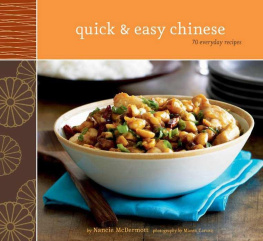
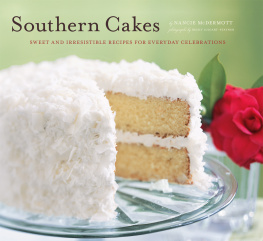
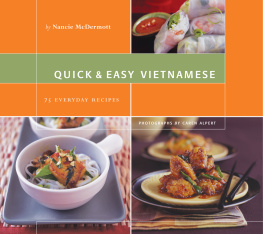
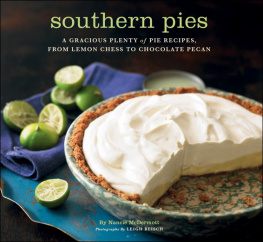
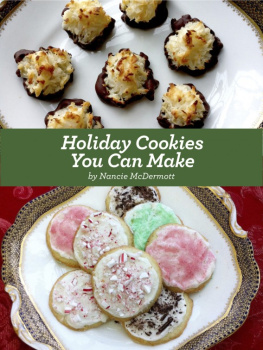
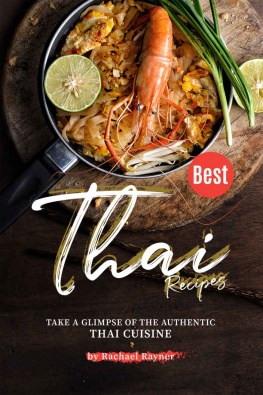

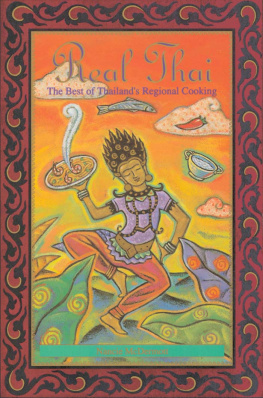

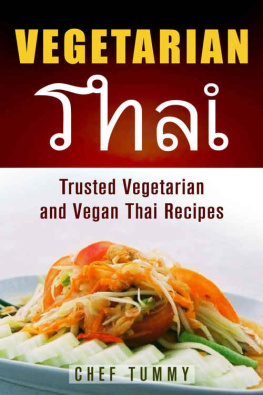
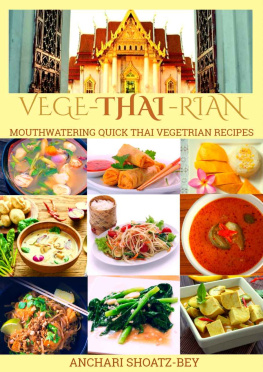
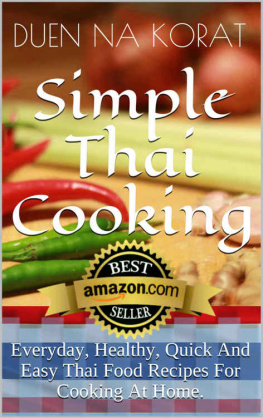


 This is a book about the remarkable food of the remarkable kingdom where I had the good fortune to spend three years of my life. I went to Thailand not to explore an extraordinary cuisine in its vibrant context, but to teach English as a second language to Thai adolescents in an upcountry junior high. In fact, I did both during my stay, as well as receiving an education in eating, laughing, shopping, linguistics, friendship, art, agriculture, cooking, economics, conversation, and enjoying life.
This is a book about the remarkable food of the remarkable kingdom where I had the good fortune to spend three years of my life. I went to Thailand not to explore an extraordinary cuisine in its vibrant context, but to teach English as a second language to Thai adolescents in an upcountry junior high. In fact, I did both during my stay, as well as receiving an education in eating, laughing, shopping, linguistics, friendship, art, agriculture, cooking, economics, conversation, and enjoying life.